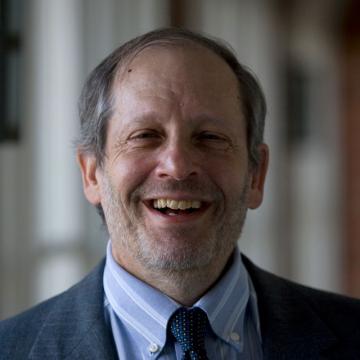Theodore Roosevelt: Life in Brief
Theodore Roosevelt, who came into office in 1901 and served until 1909, is considered the first modern President because he significantly expanded the influence and power of the executive office. From the Civil War to the turn of the twentieth century, the seat of power in the national government resided in the U.S. Congress. Beginning in the 1880s, the executive branch gradually increased its power. Roosevelt seized on this trend, believing that the President had the right to use all powers except those that were specifically denied him to accomplish his goals. As a result, the President, rather than Congress or the political parties, became the center of the American political arena. As President, Roosevelt challenged the ideas of limited government and individualism. In their stead, he advocated government regulation to achieve social and economic justice. He used executive orders to accomplish his goals, especially in conservation, and waged an aggressive foreign policy. He was also an extremely popular President and the first to use the media to appeal directly to the people, bypassing the political parties and career politicians.
Early Life
Frail and sickly as a boy, "Teedie" Roosevelt developed a rugged physique as a teenager and became a lifelong advocate of exercise and the "strenuous life." After graduating from Harvard, Roosevelt married Alice Hathaway Lee and studied law at Columbia University. He dropped out after a year to pursue politics, winning a seat in the New York Assembly in 1882.
A double tragedy struck Roosevelt in 1884, when his mother and his wife died in the same house on the same day. Roosevelt spent two years out West in an attempt to recover, tending cows as a rancher and busting outlaws as a frontier sheriff. In 1886, he returned to New York and married his childhood sweetheart, Edith Kermit Carow. They raised six children, including Roosevelt's daughter from his first marriage. After losing a campaign for mayor, he served as Civil Service commissioner, president of the New York City Police Board, and assistant secretary of the Navy. All the while, he demonstrated honesty in office, upsetting the party bosses who expected him to ignore the law in favor of partisan politics.
War Hero and Vice President
When the Spanish-American War broke out in 1898, Roosevelt volunteered as commander of the 1st U.S. Volunteer Cavalry, known as the Rough Riders, leading a daring charge on San Juan Hill. Returning as a war hero, he became governor of New York and began to exhibit an independence that upset the state's political machine. To stop Roosevelt's reforms, party bosses "kicked him upstairs" to the vice presidency under William McKinley, believing that in this position he would be unable to continue his progressive policies. Roosevelt campaigned vigorously for McKinley in 1900—one commentator remarked, "Tis Teddy alone that's running, an' he ain't a runnin', he's a gallopin'." Roosevelt's efforts helped ensure victory for McKinley. But his time as vice president was brief; McKinley was assassinated in 1901, making Roosevelt the President of the United States.
By the 1904 election, Roosevelt was eager to be elected President in his own right. To achieve this, he knew that he needed to work with Republican Party leaders. He promised to hold back on parts of his progressive agenda in exchange for a free hand in foreign affairs. He also got the reluctant support of wealthy capitalists, who feared his progressive measures, but feared a Democratic victory even more. TR won in a landslide, becoming the first President to be elected after gaining office due to the death of his predecessor. Upon victory, he vowed not to run for another term in 1908, a promise he came to regret.
Modern Presidency
As President, Roosevelt worked to ensure that the government improved the lives of American citizens. His "Square Deal" domestic program reflected the progressive call to reform the American workplace, initiating welfare legislation and government regulation of industry. He was also the nation's first environmentalist President, setting aside nearly 200 million acres for national forests, reserves, and wildlife refuges. In foreign policy, Roosevelt wanted to make the United States a global power by increasing its influence worldwide. He led the effort to secure rights to build the Panama Canal, one of the greatest engineering feats at that time. He also issued his "corollary" to the Monroe Doctrine, which established the United States as the "policeman" of the Western Hemisphere. In addition, he used his position as President to help negotiate peace agreements between belligerent nations, believing that the world should settle international disputes through diplomacy rather than war. Roosevelt is considered the first modern U.S. President because he greatly strengthened the power of the executive branch. He was also an extremely popular President—so popular after leaving office in 1909 that he was able to mount a serious run for the presidency again in 1912. Believing that his successor, William Howard Taft, had failed to continue his program of reform, TR threw his hat into the ring as a candidate for the Progressive Party. Although Roosevelt was defeated by Democrat Woodrow Wilson, his efforts resulted in the creation of one of the most significant third parties in U.S. history. With the onset of World War I in 1914, Roosevelt advocated that the United States prepare itself for war. Accordingly, he was highly critical of Wilson's pledge of neutrality. Once the United States entered the war in 1917, all four of Roosevelt's sons volunteered to serve, which greatly pleased the former President. The death of his youngest son, Quentin, left him deeply distraught. Theodore Roosevelt died less than a year later.

